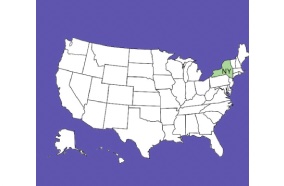By: Ronald Oddo

In 2021, New York legislators signed into law the Marijuana Regulation and Taxation Act; the legislation created a new Office of Cannabis Management (OCM) governed by a Cannabis Control Board to comprehensively regulate adult-use, medical, and hemp cannabis. Since then, New York has seen a massive increase in the number of unlicensed dispensaries and smoke-shops which surreptitiously sold a variety of cannabis products. Facing public backlash, Manhattan District Attorney Alvin L. Bragg, Jr. and New York City Mayor Eric Adams partnered with local law enforcement and city officials (“the City”) and presented their plan to combat these unlicensed dispensaries. The City informed commercial entities that the District Attorney’s Office “is prepared to use its civil authority under Real Property Actions and Proceedings Law § 715(1) to require owners and landlords to commence eviction proceedings of commercial tenants who are engaged in illegal trade or business, and to take over such eviction proceedings if necessary.” An analysis of the application of RPAPL §715(1) to unlicensed dispensaries follows.
The statute states in pertinent part:
“…any duly authorized enforcement agency of the state or of a subdivision thereof, under a duty to enforce the provisions of the penal law or of any state or local law, ordinance, code, rule or regulation relating to buildings, may serve personally upon the owner or landlord of the premises so used or occupied, or upon his agent, a written notice requiring the owner or landlord to make an application for the removal of the person so using or occupying the same.”
Notice is typically issued by the county district attorney; and in this case the Manhattan District Attorney’s Office has already threatened serving such notice. From there, if the noticed landlord does not initiate a proceeding to remove the tenant within five days, or does not diligently prosecute the proceeding after its commencement, the district attorney is authorized by the statute to bring the proceeding itself. In the case of an uncooperative landlord, both the tenant engaged in illegal trade or business and the landlord are made respondents to the proceeding. Additionally, the now respondent-landlord may be jointly and severally liable for civil penalties up to $5,000 together with the payment of the municipality’s costs and reasonable attorneys fees. A termination notice is not generally required for such an illegal-use proceeding it is granted by statutory authority and not through lease agreements.
Once proceedings begin, the action will be litigated as any other civil action. However, if an enforcement agency is the one prosecuting the action, its discovery tools have more teeth than a typical civil litigant. Specifically, RPAPL § 715(5) makes it a Class B misdemeanor (1) to disobey the command of a subpoena without reasonable cause, and (2) refuse to be sworn or to be examined or to answer a question or to produce a book or paper without reasonable cause, when ordered to do so by the officer conducting such inquiry.
The petitioner, whether the landlord or enforcement agency, has the burden of proving that premises have been used for an illegal purpose. Simply put, if the particular use of the premises by a tenant violates the law, then the premises has been used for an illegal purpose within the meaning of the statute. The evidentiary standard for the burden of proof is by a preponderance of the evidence. Jurisprudence in this area states that the petitioner must prove that the illegal use was continuous, demonstrating some level of permanence. However, in Kellner v. Cappellini, the New York City civil csourt held that “the testimony of neighbors regarding the tremendous increase in the number of people entering and leaving the building, as well as drug paraphernalia found in the building during police raids, was sufficient to raise an inference that the premises were being used as a ‘crack house.’” Thus, the petitioner, in the case of unlicensed dispensaries, will likely easily be able to prove this element. An enforcement agency will likely have even easier success due to a lower burden than landlords; the burden imposed upon the district attorney does not require proof of the commission of specific illegal acts.
The enforcement agency also has the burden of showing that the tenant had knowledge of, or has acquiesced in, an illegal use of premises. A reasonable inference from surrounding circumstances which indicate the illegal purposes for which the premises are being used is sufficient to fulfill this element. Should the Manhattan District Attorney’s Office prosecute these civil actions itself, they will likely prevail where unlicensed dispensaries are conspicuous and therefore susceptible to a large number of potential witnesses for the petitioner to call.
The Manhattan District Attorney’s Office has introduced a formidable opponent for illegal dispensaries across New York. The statutory language of RPAPL § 715 is harsh on tenants and landlords alike, and it affords the district attorney, should they step in, with a powerful array of discovery tools that have teeth. Where criminal prosecutions have failed, the civil enforcement option demonstrates a strong likelihood of prevailing against what D.A. Bragg called “the proliferation of illegal, unlicensed cannabis dispensaries.”
Ronald Oddo
J.D. Candidate, 2024
Delaware Law School
Editor-in-Chief, Widener Law Review, Vol. 30
Academic Success Fellow
C: (347) 553-0098






